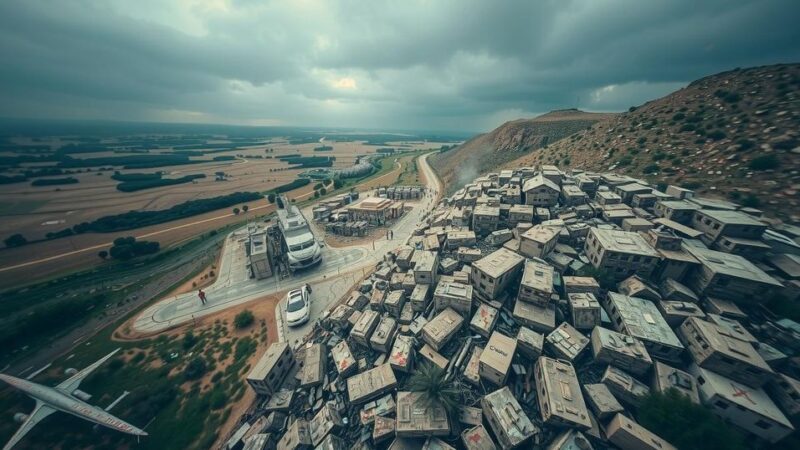Islamic finance presents a powerful tool for addressing climate change, particularly for vulnerable Muslim communities impacted by environmental shifts. With a foundation in ethical responsibility, Islamic finance promotes sustainability and social welfare through its core principles. Recent opportunities in renewable energy investments highlight the potential to affect significant change, aligning with both spiritual values and urgent global environmental needs.
The impacts of climate change are acutely felt in Muslim-majority regions, where communities face severe weather events, food insecurity, and economic challenges. Recent events, such as the catastrophic floods in Pakistan and rising seas in Indonesia, illustrate the vulnerabilities these communities encounter. Furthermore, food security issues exacerbate during Ramadan, highlighting the intersection of climate impacts and religious observance. As climate change disrupts food systems and escalates prices, the challenges of maintaining food supplies during Ramadan can become insurmountable for many families.
Islamic finance offers a promising and ethically grounded approach, promoting financial activities aligned with social responsibility and environmental stewardship. Basic tenets, such as zakat and waqf, stimulate investments in sustainable projects, contributing positively to affected communities. Successful initiatives in countries like Malaysia, the UAE, and Saudi Arabia demonstrate the potential of Islamic finance to finance renewable energy endeavors through instruments like green sukuk.
Nevertheless, there remains substantial potential for Islamic finance to deeply engage with climate action, enabling a strategic shift toward renewable energy investments. A recent report by Greenpeace MENA and the Global Ethical Finance Initiative outlines the potential growth of Islamic finance and highlights that a modest allocation of assets to renewable energy can yield a transformative impact, mobilizing significant funds toward climate resilience and sustainability.
Islamic financial institutions are uniquely positioned to lead the charge in climate investments, marrying ethical finance with pressing environmental needs. The alignment of Islamic finance with climate action not only presents a financial opportunity but also emphasizes a moral obligation in light of Islamic teachings regarding environmental stewardship and balance. In conclusion, the intersection of Islamic finance and climate action serves as a vital link for vulnerable communities, promoting sustainable economic growth while adhering to core ethical principles.
The topic of Islamic finance as a solution for climate action is critical as it intersects global economic systems, environmental issues, and the ethical considerations of Muslim communities. With growing concerns over climate change, it is increasingly recognized that financial frameworks must support sustainable development and resilience. The ethical foundations of Islamic finance promote principles such as fairness, social welfare, and environmental conservation, aligning them with the urgent need for climate solutions. The challenges posed by climate change are not just environmental; they are social and economic, particularly in regions that are already vulnerable to its effects. Thus, exploring how Islamic finance can simultaneously address these challenges is both timely and necessary.
In summary, Islamic finance embodies a significant ethical and practical resource in the global fight against climate change. With its roots in social responsibility and community upliftment, this financial framework promotes investments in renewable energy and sustainability. Strengthening its role within the climate action movement is not just advantageous but essential for protecting vulnerable communities and fostering an environmentally balanced future. Through these efforts, Islamic finance has the potential to align deeply with core values while contributing to a more equitable and sustainable world.
Original Source: www.greenpeace.org



